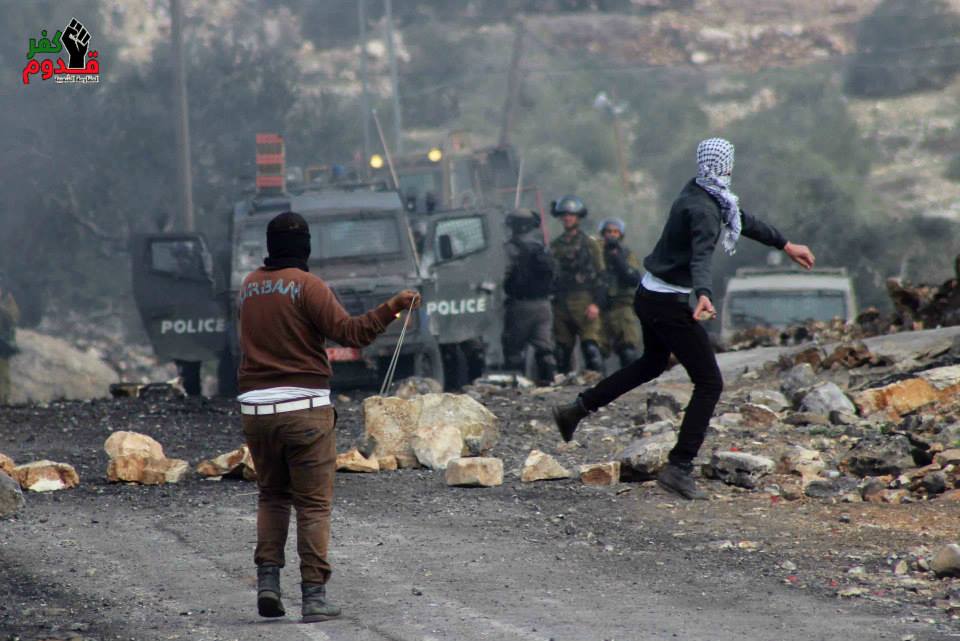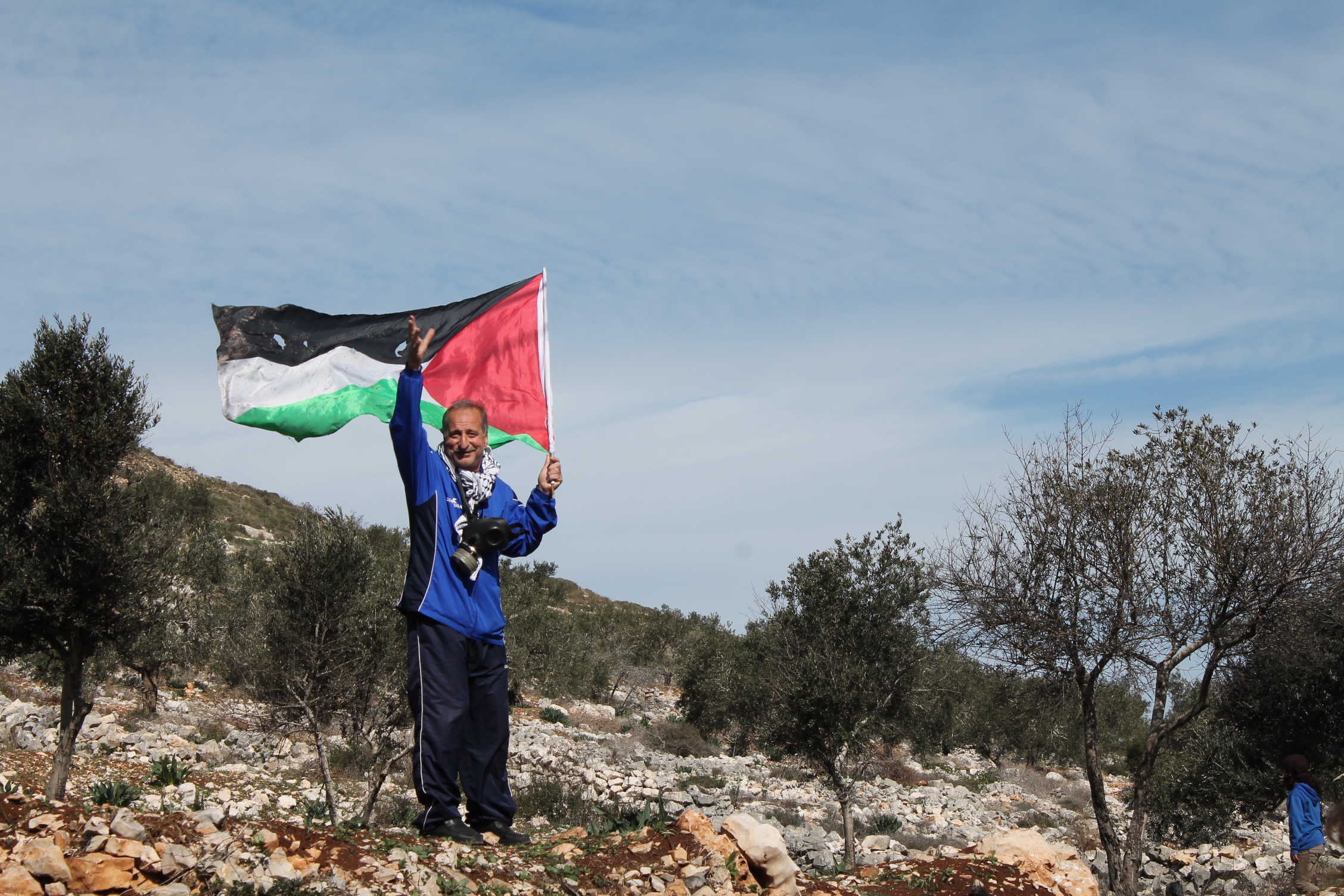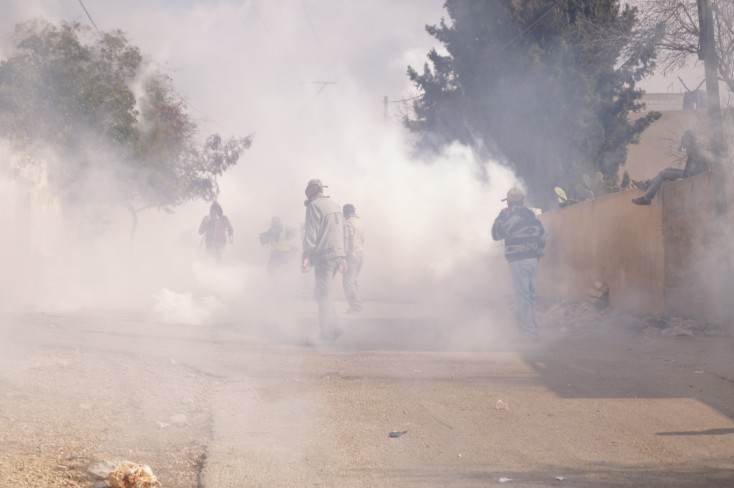Category: Nablus
-

Four injured at weekly demonstration in Kafr Qaddom
14th February 2014 | International Solidarity Movement, Nablus Team | Kafr Qaddom, Occupied Palestine At approximately 10:00 a.m. on Friday, the Israeli army positioned themselves on top of the hill overlooking Kafr Qaddom and on the closed road that leads to the illegal settlement, Qedumim. As they did last week, the Israeli army attempted to portray…
-

UN presence at Kafr Qaddum demonstration leads to theatrics by Israeli forces
31st January 2014 | International Solidarity Movement, Nablus Team | Kafr Qaddum, Occupied Palestine In stark contrast to other Fridays, the weekly demonstration of Kafr Qaddum, in Qalqilya district, on 31st January, 2014, was met with a cynical display of theatrics, in which Israeli forces attempted to portray themselves as peacemakers. The presence at the…
-

Weekly protest at Kafr Qaddum met with exceptional violence
24th January 2014 | International Solidarity Movement, Nablus Team | Kafr Qaddum, Occupied Palestine On Friday 24th January, 2014, the weekly demonstration in Kafr Qaddum, in the Qalqilya district, was repressed by excessive force, to a much greater extent than on most Fridays. By 11:00 a.m., clashes had already broken out between local youths and Israeli soldiers…
